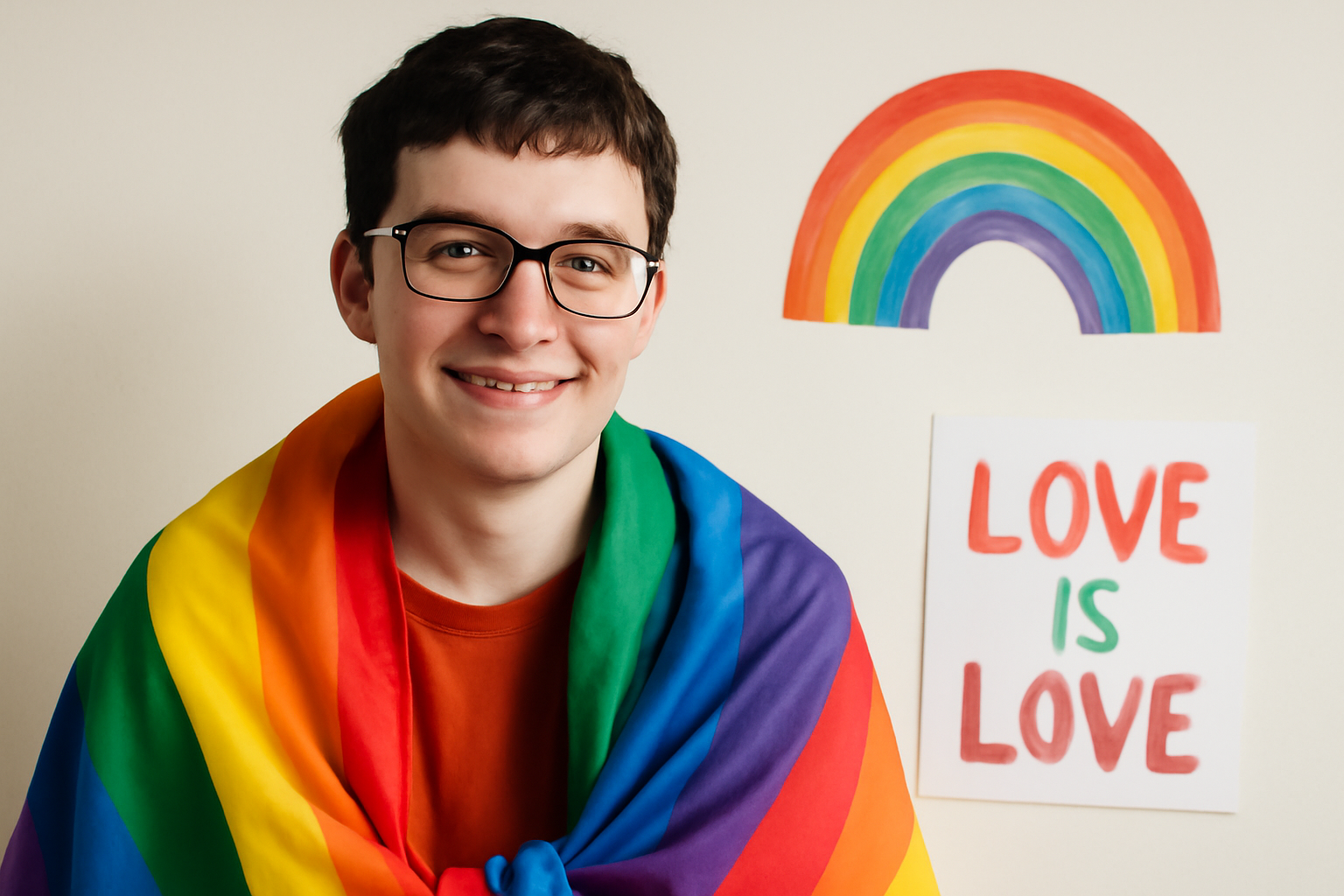
Over the past decade, I have been dedicated to a project that evolved into the “Autistic Initiative for Civil Rights,” the pioneering self-advocacy group for autistic individuals in Russia and Ukraine. Created by autistic people for autistic people, this initiative emerged in regions where misconceptions about autism were rampant, often being confused with schizophrenia or dismissed as a child's only condition. The notion seemed radical, particularly as I championed a neurodiversity paradigm: the belief that the variety of human minds is natural and normal. The challenges faced by autistic individuals stem more from societal discrimination and stereotypes than autism itself. For me, being autistic is as integral to my identity as being transgender. Autistic individuals need support, not a cure.
It's unsurprising that our early allies were LGBTQ organizations, as they understood the pain of being labeled as unhealthy or broken due to societal prejudices.
There exists a profound connection between the autistic and LGBTQ communities. Research indicates that individuals who do not identify with their assigned birth gender are three to six times more likely to be autistic. Additionally, the prevalence of lesbian, gay, and bisexual identities is two to three times higher among the autistic population.
Communicating this intersectionality, I began writing in Russian, creating digital platforms dedicated to LGBTQ autistic narratives since Russian is the most widely spoken language in the post-Soviet space. Despite my disdain for Russian politics, my goal was a broader reach.
I translated numerous compelling personal stories of LGBTQ autistic individuals from English into Russian, with most narratives originating from the United States. Historically, autistic communities globally have looked to the American autistic movement as a beacon, given the wealth of disability rights activism originating there.
As a young teenager discovering my own autism, I was inspired by news such as the appointment of Ari Ne’eman, the first openly autistic nominee to the U.S. National Council on Disability by President Obama in 2009. At a time when Russian and Ukrainian resources were scarce and often portrayed a bleak future for people like me, American activists challenged these misconceptions.
American autistic and LGBTQ activists have been foundational for those like me, providing much-needed hope and guidance.
However, recent developments in the United States pose a significant threat not only to American autistic communities but globally. The current U.S. administration's stance, particularly under figures like Robert F. Kennedy at the Department of Health and Human Services, perpetuates damaging myths, such as the discredited linkage of autism to vaccines—a stereotype prevalent in Russia, complicating efforts to promote vaccination and prevent disease.
Moreover, the administration's executive orders, including the creation of a commission to ostensibly reduce the prevalence of autism, misconstrue the situation as a crisis. In truth, the perceived increase in autism diagnoses is due to improved awareness and diagnostic methods, not an "epidemic." Autistic individuals are not a threat to any economy or security.
In consultation with Sam Crane, a seasoned autistic disability policy expert, it becomes clear that the administration's rhetoric undermines years of advocacy aimed at removing the stigma of autism as a health crisis.
We need robust access to healthcare, community-based supports, education, and civil rights, all of which are under threat. The cessation of funding for quality-of-life research, particularly by and for autistic individuals, disproportionately affects marginalized groups, including autistic people of color and LGBTQ individuals.
The current political climate in the U.S. endangers both autistic and LGBTQ communities—especially those who are transgender—by treating them as issues to be resolved rather than people deserving of rights and recognition.
LGBTQ autistic people, due to systemic barriers, may suffer most acutely, facing compounded discrimination and potentially having less support from broader LGBTQ communities.
The visibility and influence of American activist groups means these stereotypes, once confined, now cross borders as quickly as the advocacy movements themselves.
Global initiatives, once supported by programs such as USAID, which assisted disabled and LGBTQ individuals, are now compromised.
In this landscape, during Autism Acceptance Month in April, it is crucial for autistic activists, particularly those within the LGBTQ community, to reclaim their narratives. Our stories must be told by us, not through the lens of a flawed system. The support of the wider LGBTQ community is vital in this pivotal moment. The question remains: will the LGBTQ community stand alongside us in this critical fight for visibility and rights?
Related Posts
Pride and Fandom Unite: A Celebration for All
In our fast-paced, interconnected society, events that bring people together through shared interests are more important than ever. One such event truly shines as a vibrant celebration where everyone can feel welcome, especially those in our LGBTQ+ community. This gathering isn't just another convention; it's an epic mix that combines nerdy passion with a heartfelt embrace and respect, showcasing [...]
Baseball Coach's Controversial Remark Draws Backlash Amidst Pride Month Celebrations
Controversy flares over slur at college baseball game A college baseball game recently sparked a heated discussion about discrimination in sports and how coaches need respect and inclusivity. Tom Walter, Wake Forest University's baseball coach, landed in hot water after allegedly directing a homophobic slur at a Tennessee player during an NCAA playoff game. National TV catches it all Everything [...]
Elder Scrolls IV: Oblivion Remastered Faces Backlash Over Character Customization Changes
The release earlier this year (April 22, if you’d like specifics) introduced us all over again, but with a twist, with The Elder Scrolls IV: Oblivation Remastered sparking a passionate conversation among gamers. For some, it’s a beloved classic with a fresh polish, while others are fussing about its alleged lean towards “woke” culture. Originally appearing in 2006 from Beth [...]